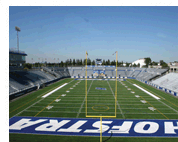Amateur Lacrosse Player Becomes Respected Professional Hockey CoachDec 16, 2016Posted by james
He was studious in college and he covered his long hair with a San Francisco Giants cap that he wore backward. He loved hockey and he frequently attended games at the nearby NHL arena when his friends from Canada came into town to play the local team. He even played on his university’s club hockey team.
After college, he went to law school in Michigan. Soon after, he began coaching hockey at Catholic Central High School in Grand Rapids as a favor to a judge whose son played on the team. The team won a regional title and the lawyer turned coach was hooked.
The coach continued to rise within the amateur hockey ranks. Then he moved on to the professional minor leagues. For the last few years, Jon Cooper has been coaching a very successful NHL team – the Tampa Bay Lighting.
This young fellow (he’s only 49) already has accomplished a lot. All of it just seemed to happen. Actually, Jon made it happen. He is bright, charismatic and has this certain smile. People want to be around him.
When he fields questions about his coaching profession, Jon regularly responds that he’s a people manager. He also feels that he brings the philosophy of life to coaching. Early on, he considered himself more of a life coach than a tactical coach.
Jon’s athletic roots travel back to his teenage years as an indoor lacrosse star in British Columbia. The rest started to fall into place when he attended Hofstra University and played lacrosse for Harry Royle.
A love for hockey, an education and lacrosse career at Hofstra, law school and now Jon is coaching in the best hockey league in the world. There are many reasons to applaud Jon’s success. Glad to know that lacrosse and Hofstra made significant contributions.









